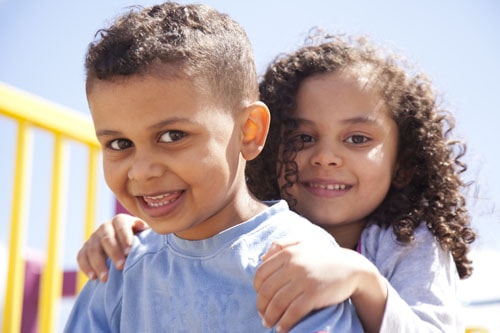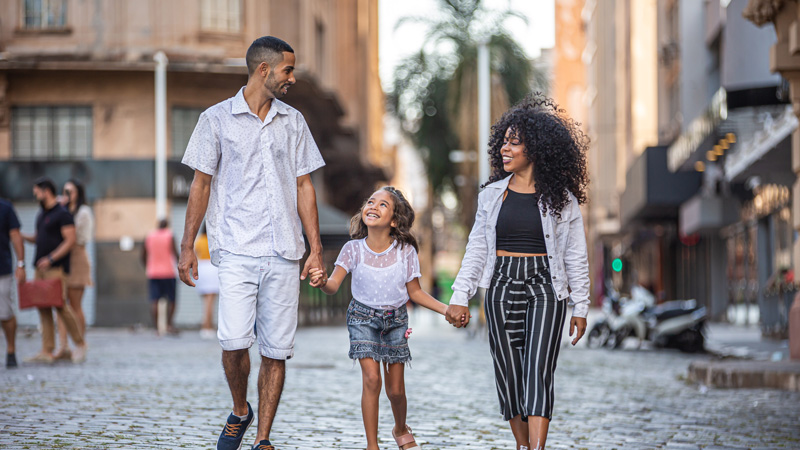Página inicial

Family Royalty-Free Images and Stock Photos
Families come in all shapes and sizes. Family images show mothers and fathers, brothers and sisters, children and grandparents, and every diverse mix in-between, doing what families do best: loving one another. Skillful designers, social media managers, and bloggers know just how powerful an image of a happy family can be. If you are in need of an eye-catching family photo for your next project, you have come to the right place. Whether you want an action shot of a playful family pillow fight or a relaxed photo of a family watching TV together, Shutterstock’s vast library of family photos, illustrations, and icons has you covered. Read on for tips on how best to incorporate family imagery into your next creative endeavor.
More images you may like
Family images for websites
If you run a travel site and want to encourage visitors to book a family vacation, vibrant family imagery is key. You want your potential customers to take one look at your photos and instantly see their own family in such a beautiful setting.
Action shots of children snorkeling in aquamarine waters or a family running down a tropical beach are sure to inspire the desire to take a trip.
Images that emphasize the travel aspect can also work well. A beautiful shot of a family standing together in an airport before a floor-to-ceiling window that shows a plane taking off into the sky will make viewers eager to book a flight of their own.

Tips and tricks to make the most of your family images
What to look for in a family image
Questions about family images
A family portrait tends to involve all family members posed before the camera. They are often situated close together with hands resting on another family member’s shoulder or arm to demonstrate closeness. Usually, they are all looking at the camera. A family picture, on the other hand, tends to come across as a bit less traditional and a bit more candid. It might involve members of the family running and laughing on a beach or walking down a tree-lined avenue. Some or all family members may be looking at one another instead of at the camera.
What comes to mind when you hear the world family? Hopefully love, laughter, and time well spent with the ones you hold dear. A good family stock photo should evoke such warm feelings in the viewer. Shots of parents playing with their children quickly evoke a sense of family. Dynamic shots work well: a family running down a sun-kissed beach, blowing bubbles in the park, or engaged in a pillow fight at home. A good family stock image should look as if it was taken of a real family. Such lifestyle imagery works best when the people in the photo do not appear posed, but instead look as if they were caught in the middle of a sweet family moment. Middle-of-the-action shots in which the family members are taking bites of food at their family dinner, for example, come across as more real to the viewer than one in which the family members appear stiff and unmoving.
The best colors for a given family picture depend on a number of factors: the tone, location, and time of year in which the photo is taken all play a role. Tone: If the shot is meant to convey formality, the family members may opt to wear black or other dark colors or even formal evening wear. If the tone is light, however, then lighter hues may be worn. A family picture on the beach, for example, often looks lovely with the family members in white, tan, or light blue. Location: A family shot taken on the beach with blue sea and sky and rich green palm trees in the background may benefit from a simple clothing color such as white. In general, if the backdrop is bright and bursting with color then the family members should opt for more neutral hues such as tan. If the shot takes place in a more neutral setting, such as a black or brown couch, then the family may want to choose more colorful outfits. Season: Is spring on the horizon? Go for light greens, pale yellows, and other soft pastels. Avoid heavy dark colors such as black. To match the intensity of summer heat, bold colors such as a rich red or vibrant blue can work well. If going for an autumn shot, look to the trees for inspiration. Try browns paired with burnt orange or dark purple. If the holiday season is fast approaching, you might want to opt for white, gold, or silver. If the family celebrates a specific holiday, wearing the associated colors may be appropriate: red and green for Christmas, blue and yellow for Hanukkah, or red, black, and green for Kwanzaa.
When presenting viewers with an image, the hope is that they will spend time with it and not immediately click away. Your audience is more likely to be pulled into a photo if it tells a story. Below are a number of tips on how best to select a family image that tells a story: Get dynamic: A static image of a family posed before a nondescript backdrop is not nearly as engaging to the viewer as one in which the family is engaged in an activity. A photo of a family cooking together with a father helping his daughter to safely cut a carrot, for example, places the viewer in a dynamic scene. The viewer can practically imagine pressing the PLAY button on this paused moment and hearing the father continue his knife safety explanation. This sense of liveliness keeps the viewer engaged. Get sequential: You can easily aid the viewer’s imagination by adding a follow-up photo to that of a family cooking: a family eating. Go a step further by showing a family doing the dishes together too. By doing so, you will have wordlessly told a complete, chronological story to your viewer with beginning, middle, and end. Get emotional: When it comes to storytelling, emotion is key. Look for family images in which the faces of the family members are bright and expressive. Body language can also convey emotion, so be sure to take a look at how open and receptive the family members appear to be to one another.
Generally speaking, a family picture in which the people appear to be a happy family is ideal. This can happen in a number of locations. The picture could show the family watching TV together, snuggled up on the couch for movie night, or laughing together as they cook and prepare a family dinner. To get more specific, however, ask yourself what you intend to convey with your family picture. If you want your viewers to get a sense of coziness, then a picture of a family at home, with a mother reading a book to her child beside a fireplace, for example, would likely do the trick. Alternatively, if you hope to inspire a sense of adventure, then a shot of a family hiking together along a mountain ridge would be a better option.

Chegamos a mais de 475 milhões de recursos na Shutterstock.com em 30 de novembro de 2023.



















































































































































